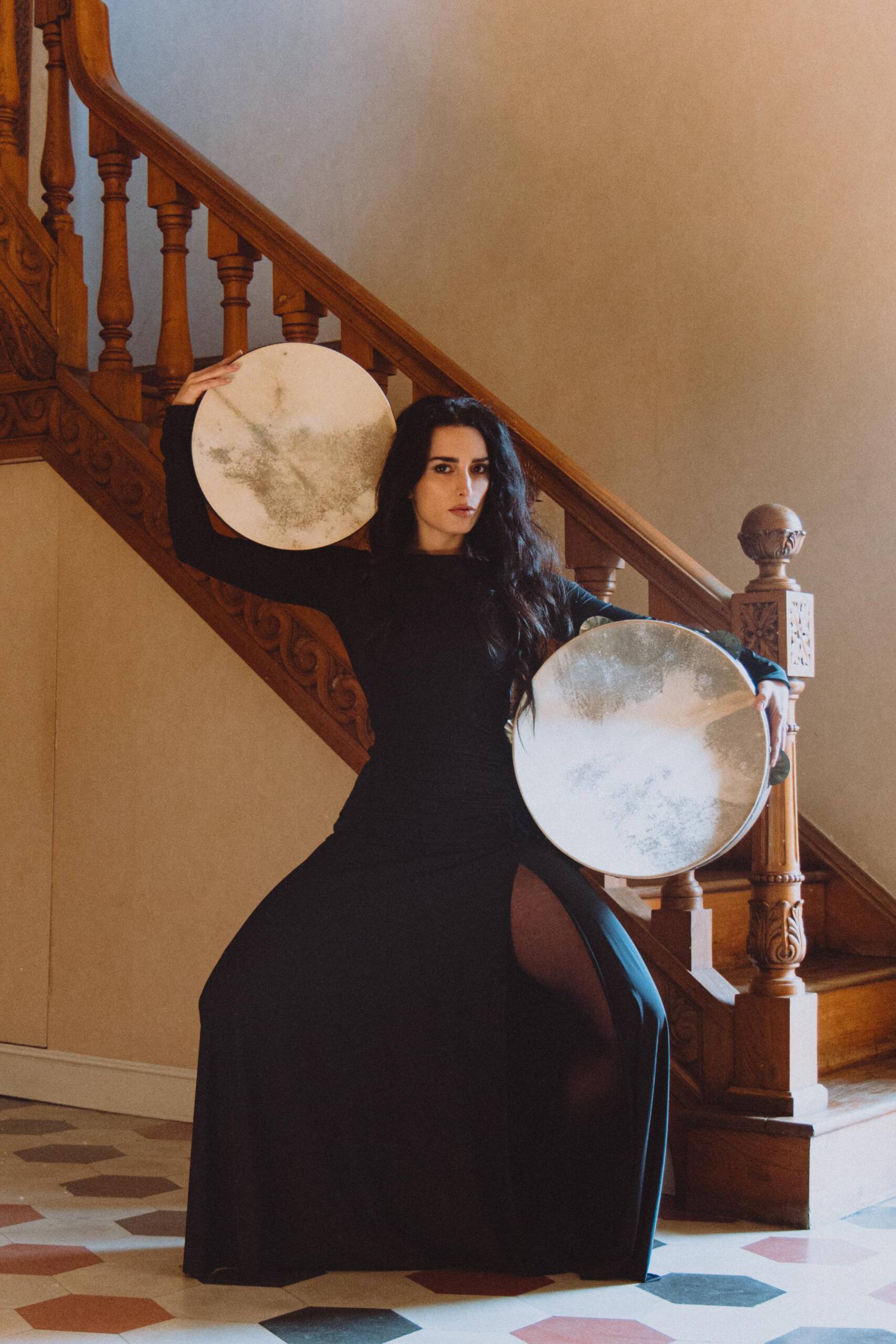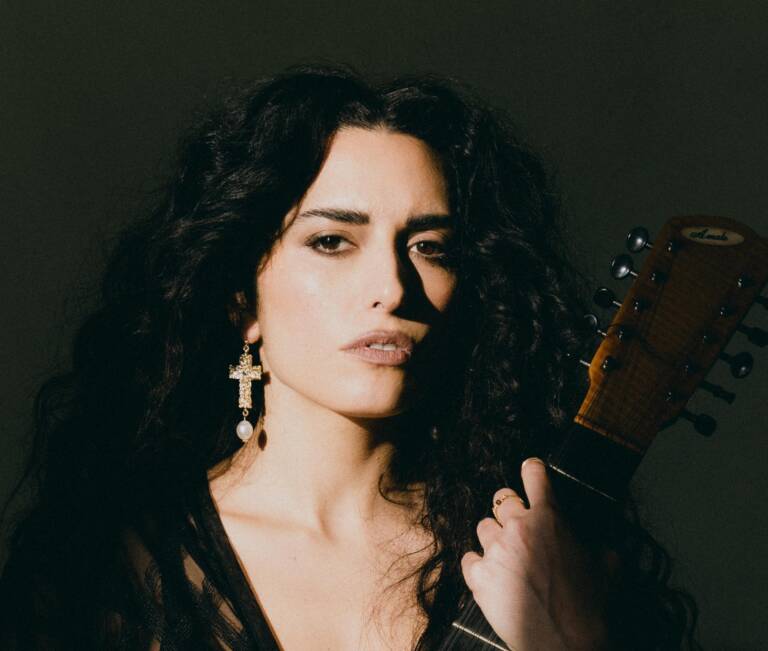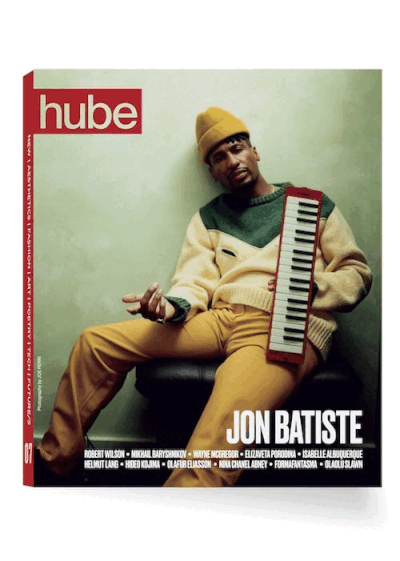Neapolitan singer and song-writer, La Niña, has taken the music industry by storm with her most recent album Furèsta. Incorporating elements of Neapolitan dialect, Arabic, and French, the album has acted as an ode to the history and traditions of Naples and all its influences – while also demanding a revolution of outdated limitations and injustices, especially those faced by women. To hear La Niña’s vocals is to understand the message of a language in which you may never speak. To watch La Niña is to understand that you are bearing witness to something, someone, actively demolishing and rebuilding the constraints of this moment as we understand it – reshaping the structures and foundations of music and language.

Photographed by HELOISE VYBIRAL
hube: Your music seems to transcend language itself, resonating with listeners on a deeply emotional level. Was this a conscious intention from the start, or did it unfold naturally over time?
La Niña: Music spoke before I ever did. Long before I could shape a lyric, I was drawn to breath, to raw sound, to the resonance of the unsayable. It wasn’t a conscious mission to transcend language – it emerged naturally, from feeling often out of place within language itself. Music became the one space that could hold what words couldn’t.
h: In an industry that often tries to flatten people into categories and aesthetics, how do you maintain your sense of dimensionality and depth?
LN: Depth, for me, is born from resistance – the quiet rebellion of staying true to oneself even when the world prefers a flatter version of you. I’ve never wanted to be a genre, an aesthetic, a brand. What I make comes from what I live – messy, layered, unresolved. That’s where the realness is. And it’s the realness that endures.
h: Your latest album, Furèsta, meaning ‘forest’, evokes themes of nature and space. What is the significance of these elements in your musical process?
LN: Furèsta is me moving through the world as a sensitive body. Nature, for me, is both sanctuary and stranger – it heals, but it also overwhelms. Walking through a forest is like being inside a song: you don’t grasp everything at once, but you feel held. That’s how I approach making music – I get lost, so I can return changed.
h: Your work explores the complexities of womanhood and the struggles that accompany it. What drew you to this theme – and why now?
LN: The woman I am today carries battles – personal and inherited. I didn’t choose this theme; it chose me when I finally had the voice and sound to hold it. To speak of womanhood’s contradictions is not just political – it’s an act of tenderness, a tribute to the women who shaped me, who survived in me.

Photographed by HELOISE VYBIRAL

